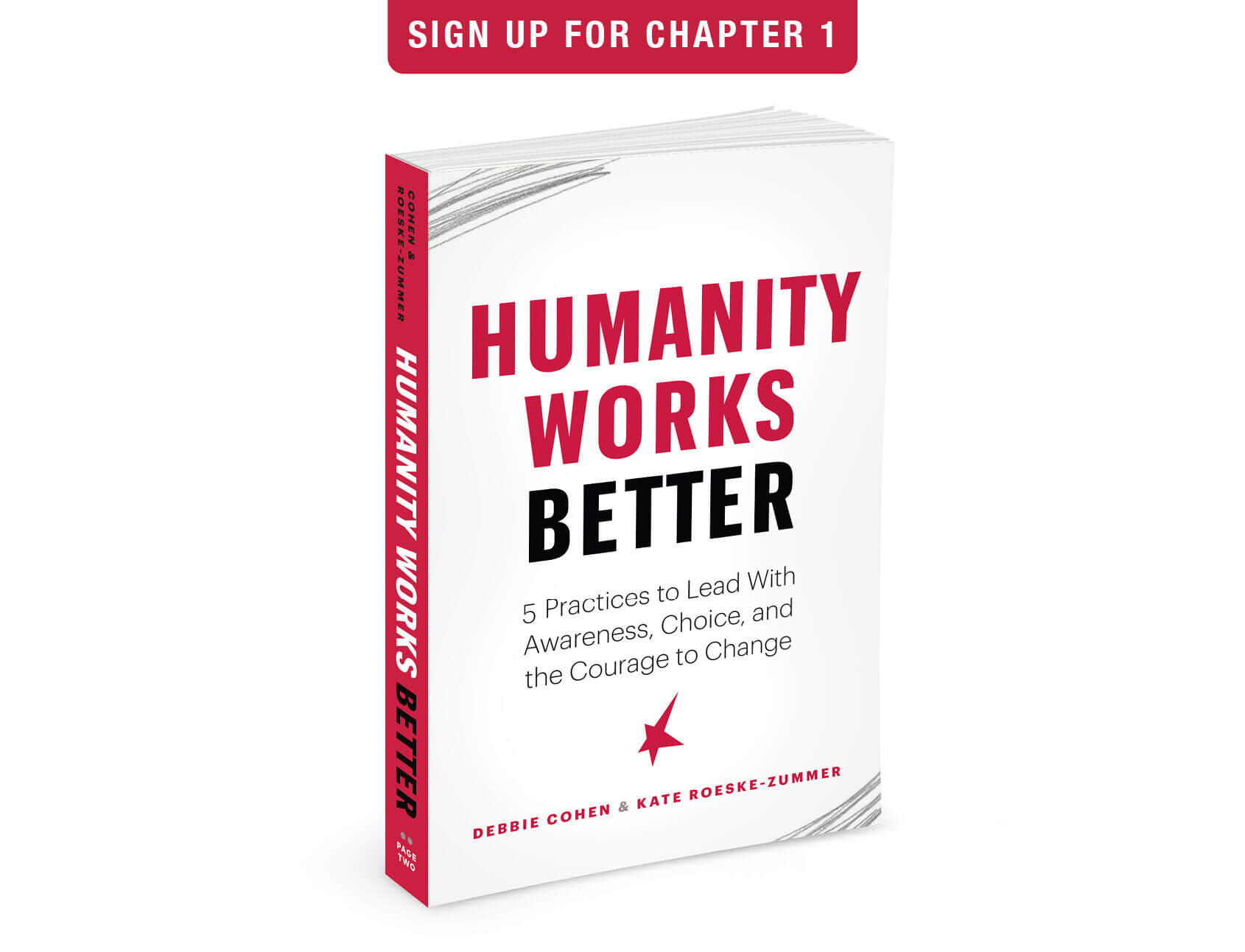
When you know what is important to you, you can then act on those values: that is the claiming part.
Claiming your values is the alignment of your thoughts, words and actions. We saw multiple, impressive examples of this over the summer from athletes on the Olympic stage!
Humanity shows up in many ways: Simon Biles offering support to her teammates as she struggles, and Annie Lazor cheering on her competitor Tatiana Schumacher, from Australia, who beat a world record. The agony of defeat found its way to the badminton court as Denmark took the gold from China. The response? Competitors exchanging hugs and jerseys. 800-meter runners helping each other up after a fall and helping one another over the finish line. And not to be forgotten, the two high jumpers, one from Qatar and one from Italy, who, for the first time in Olympic history shared a gold medal. Humanity looks good on all of them!
In our upcoming book, Humanity Works Better, Claiming Values, one of our Five Practices, helps you become conscious of what drives your behavior and articulate what is important to you. When you know what is important to you, you can then act on those values: that is the claiming part.
When something is happening around you – good, bad or ugly – it is hard to step into an action around that if you have not first identified what is important to you. Good (and big) questions to ask: What is important to me? What kind of person/athlete/sister/friend do I want to be? Begin there.
Sportsmanship has been the backbone of the Olympics for as long as we can remember and yet, somehow this year it feels surprising. The gift? So many examples of athletes choosing sportsmanship over their own individual gain. Their personal definitions of success exceeded a gold medal.
Here is what we know: YOU claim your values, no one else. Only you can do the hard, soul-searching work to understand and claim what is important to you. As always, it comes back to YOU. When you align your thoughts, words and actions with your values, we promise it will look good on you.
Why? Because the only thing you can control, is you.

